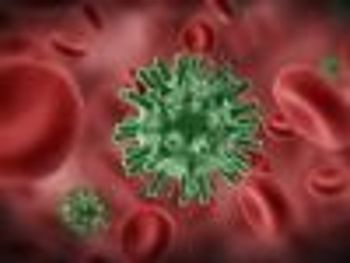
It can be hard to motivate those who need the flu vaccine the most.

It can be hard to motivate those who need the flu vaccine the most.

In the recent past, bipolar disorder has been classified as the most costly mental illness.

Multidose medication dispensing at discharge (MMDD) involves supplying products that have been partially used during hospitalization to ensure continuity of care.

The prevalence of hypertension increases with age, so much so that patients 65 and older frequently receive this diagnosis.

Approximately 1 in 4 individuals will develop atrial fibrillation. Most disconcerting is their potential for hemorrhagic and ischemic stroke, as this risk increases up to 5-fold in AF patients.

Top infectious diseases articles for pharmacotherapy from last year.

Each year, the American Society of Health-System Pharmacists provides a tremendous service to pharmacists by publishing a list of significant articles on infectious diseases pharmacotherapy from the previous year.

Up to 82% of patients with headaches turn to complementary and alternative medicine for relief, frequently without first consulting a physician.

Despite their remarkable effectiveness, influenza vaccines have faced their share of challenges over the years.

Patients with bipolar disorder who have lingering levels of symptoms and instable moods between episodes often relapse and require hospitalization.

Program addresses the needs of minority and minority-serving clinicians and their communities.

For more than 25 years, the Midwest AIDS Training + Education Center has educated clinicians who provide care to patients infected with human immunodeficiency virus (HIV) and those at risk for HIV.

Rehospitalization and mortality associated with acute coronary syndrome (ACS) often boils down to poor cardioprotective medication adherence.

When a screening program is proposed, policymakers have some questions: does screening improve detection of the target diagnosis; is systematic screening better than opportunistic identification?

Respiratory diseases affect millions worldwide and greatly burden the global health care system financially.


Diabetics are at greater risk for viral and bacterial infection compared with the remainder of the population.

Current medication regimens used in bipolar I disorder produce suboptimal patient outcomes more often than not.

Community pharmacists who expand their roles and make home visits to heart failure patients after hospital discharge can improve outcomes.

Developing more effective influenza vaccines for the elderly, who are often hit hardest when infected, has been a research focus for decades.

Vitamin D deficiency has been linked to obesity and metabolic syndrome.

More and more proton pump inhibitors (PPIs) are making the jump to OTC status, and this plethora of new options may confuse patients.

The entire July 2015 issue of Heart Failure Clinics is devoted to team-based care.

Poor medication adherence increases the risk of relapse, hospitalization, and suicide in patients with bipolar disorder.

Warfarin remains a cornerstone anticoagulant for a number of reasons that include its low cost at the pharmacy counter.

Acute coronary syndrome can take a variety of forms.

Asthma's increasingly deleterious morbidity and socioeconomic burden are of tremendous concern to clinicians and public health officials.

To win the health care relay race, one clinician needs to pass the baton to the next clinician, who must be ready to receive it.

Chemotherapy-induced neutropenia (CIN) is a common adverse occurrence in patients treated for solid tumors.

Specialty and community pharmacies more involved in cancer treatment.